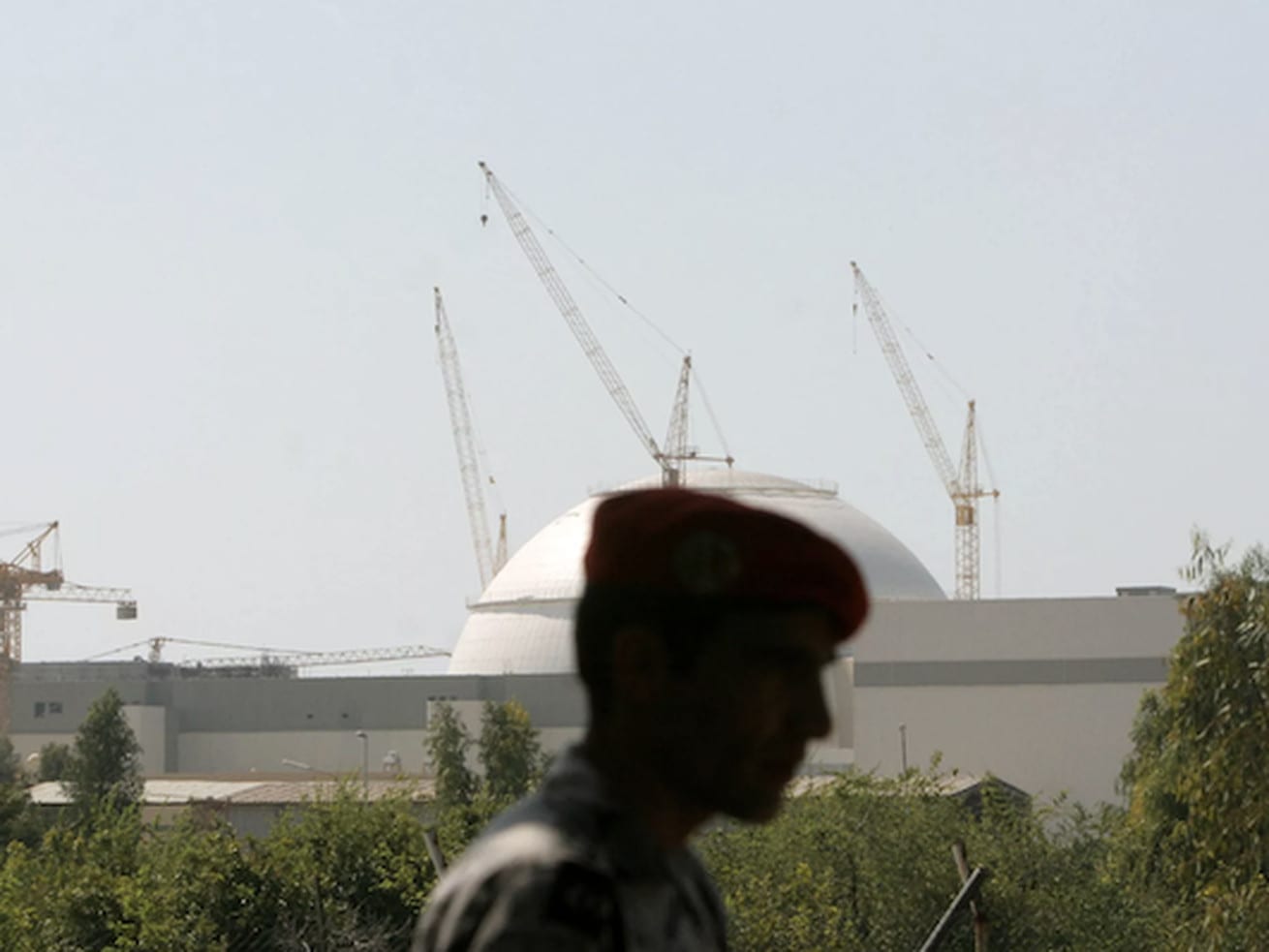Vox Sentences is your daily digest for what’s happening in the world. Sign up for the Vox Sentences newsletter, delivered straight to your inbox Monday through Friday, or view the Vox Sentences archive for past editions.
Iran threatens to violate part of the 2015 nuclear deal; a nationwide blackout in Argentina brings the country to a standstill for a day.
Iran makes high-risk threat to violate nuclear deal
/cdn.vox-cdn.com/uploads/chorus_asset/file/16350087/sentences6.17.153758.png) Majid/Getty Images
Majid/Getty Images- Tensions between the US and Iran further rise as Iran threatens to breach part of the 2015 nuclear deal. [NPR / Scott Neuman]
- Iran announced on Monday that it would surpass the stockpile limit for low-grade uranium in the next 10 days if US sanctions aren’t lifted. Under the nuclear deal, which President Trump withdrew from last year, Iran is not allowed to have more than 300 kilograms on hand. [CNN / Frederik Pleitgen, Nada Bashir, Hira Humayun, and Bianca Britton]
- These sanctions have squeezed Iran’s economy: The Trump administration discouraged global businesses from engaging with Iranian companies and cut off revenues from oil sales. [NYT / Edward Wong and Megan Specia]
- As of now, this increase wouldn’t mean that Iran immediately has the capability to create a nuclear weapon. Experts do say, however, that the technology needed to increase uranium concentration levels becomes easier at higher levels, which is why Iran’s announcement is setting off alarms. [BBC / Jonathan Marcus]
- The pressure is on the European countries in the nuclear deal — Britain, France, and Germany — to save the agreement by helping combat US sanctions, Iran said. So far, the countries have shown reluctance to get involved in the conflict. [Reuters / Parisa Hafezi and Steve Holland]
- Iran’s latest threat signals how the relationship between the US and Iran is declining: Most recently, the US blamed Iran for attacks on oil tankers in the Gulf of Oman, which Iran denies. [Washington Post / Erin Cunningham, Rick Noack, and Michael Birnbaum]
- Secretary of State Mike Pompeo said on Sunday that the US is considering a range of options to address the rising tension between the two —and military action is not off the table. [CNN / Jamie Ehrlich]
- Iran’s risky strategy bets on the US backing down and resorting to diplomacy. As of now, that seems highly unlikely since the Trump administration is led by Iran hawks such as Pompeo and National Security Adviser John Bolton. [Vox / Alex Ward]
A widespread blackout affects millions of people
- Argentina came to a standstill after a nationwide blackout that affected about 48 million people. [NYT / Daniel Politi and Clifford Krauss]
- Power was cut off early Sunday morning, around 7 am, due to a failure in the electrical grid. Uruguay, which relies on Argentina for its power, was also affected by the outage, and electricity was not restored for most people until late in the day. [BBC]
- Everyday life became a struggle as the power went out: Public transportation came to a halt, traffic signals stopped working, water distribution systems were shut down, and internet communication was disrupted. [NPR / Daniella Cheslow]
- The outage also affected provincial elections held in Argentina that day. Voters could be seen illuminating their ballots with their phone flashlights. [Al Jazeera / Natalie Alcoba]
- Power outages are somewhat frequent in Argentina and other regions in Central America because the grid needs updating — although this particular blackout was unprecedented in its scope. [AP / Luis Andres Henao and Paul Byrne]
- Argentine President Mauricio Macri has promised a thorough investigation into the cause of the blackout. As of now, the government does not think it was caused by a cyberattack. [CNN / Helen Regan and Eliott C. McLaughlin]
- The blackout, however, could quickly turn political because of Macri’s past initiative to cut energy and electricity subsidies as part his plan to jump-start the country’s economy, which was widely unpopular because it raised utility costs. This incident may raise serious questions about the state of Argentina’s infrastructure. [Vox / Jen Kirby]
Miscellaneous
- Expiration dates don’t have much to do with food safety. Just ask the guy who ate expired food — like heavy cream 10 weeks past date — for an entire year to prove the point. [Washington Post / Daron Taylor]
- A Pennsylvania man volunteered to give free dad hugs during the Pittsburgh Pride parade. He didn’t realize he’d receive so many emotional embraces from people. [CNN / Hollie Silverman]
- A beach cleanup broke a world record: 633 divers operated the world’s largest underwater cleanup, collecting 1,600 pounds of lead fishing weights alone. [South Florida Sun Sentinel / Wayne K. Roustan]
- New York City, which has long resisted the boom of electric scooters, may finally allow the devices on its roads. [The Verge / Andrew J. Hawkins]
- Those fashion influencers you see on Instagram? Yeah, they might not be real humans. [NYT / Tiffany Hsu]
Verbatim
“At that hour, you couldn’t see anything. The bus was travelling in slow motion because the driver was afraid he might hit someone. It was terrible.” [Blanca Brito from Argentina describing the early hours of the blackout]
Watch this: How the filibuster broke the US Senate
It started as an accident, and today it lets the losers rule Congress. [YouTube / Alvin Chang]
Read more
A new poll shows how sexism and electability collide in 2020
Rocketman’s music director explains why you shouldn’t compare it to Bohemian Rhapsody
Wish, the super popular, ultra-cheap shopping app, explained
How elite colleges fail half of the poor students they admit
Why women in tech are being Photoshopped in instead of hired
Author: Catherine Kim
Read More



